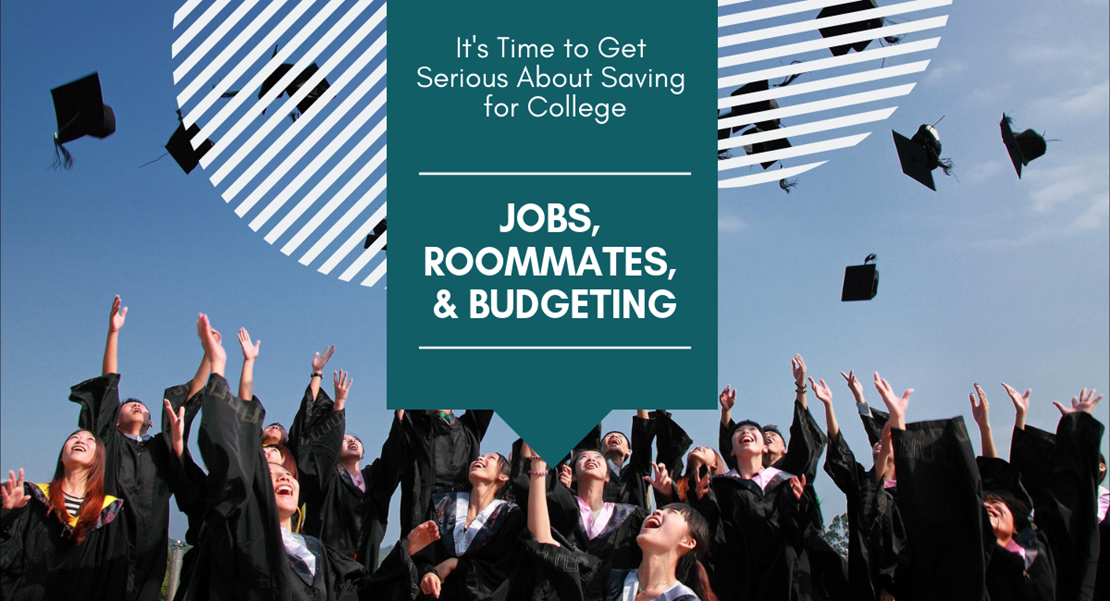
Some advice needs time for you to realize how much it matters. If you’re already in college, you’re probably finding out just how much buying things in the adult world costs. So stop spending on things you don’t need now! We’ve put together some tips that maybe you’ve heard before, but need to hear one more time to really make an impact.
It’s all about the resume people. Having any job is better than none, but think about where you want to end up in the future. Going through a more rigorous interview process may seem intimidating when entering the adult world, but getting a more prestigious job as a college student will transfer into a higher paying job in the future. Some campus jobs can double as college credit, and usually pay better than others as well. If you aren’t in college yet, look for a job that can offer you more than just a paycheck. Gaining exposure to the field you’re interested in early on can turn into good stories for interviews, while also increasing your savings account.
The best way to reduce your expenses is to live with other people! Your freshman year you will probably be living in your campus’s dorms, so make good use of the unlimited food and included utilities while you can. The smart move after that is usually apartment living, be sure to compare prices around the area, and take into consideration the distance from campus to minimize driving expenses as well. Remember that you have the rest of your life to decorate a house, so don’t waste money on expensive décor for your temporary college living space. If there are things broken in your new apartment, don’t replace them your own dime, it’s your landlord’s job to make sure you are in a safe and up-to-code building.
You like to think that budgeting is something you have time to do later, but deep down you can admit you should start now. Budgeting is easier than you think, and you can probably estimate most of your expenses each month within a pretty close window.
- Keep a max amount in your checking account. When that direct deposit hits your account, only keep what you need in your checking. When you set money aside into your savings, consider it off-limits.
- Set a fun money limit. When you’re moving money into savings, give yourself a little wiggle-room. For example, make sure rent and utilities are covered, then make a mini-budget for your fun money. This could be $20 a week for spending time with friends. But, remember to keep this reasonable, and don’t set money aside for unnecessary expenditures like shopping or daily take-out meals. If you don’t spend all your fun money one week, put the extra in savings or put it towards a different week when you know you’ll need it, instead of spending more than your budget.
- Utilize payment apps. You’re probably always on your phone anyway, so make good use of that time and track your expenses. Apps like Cash App and Venmo allow you to make person-to-person payments with friends. So, when it comes to splitting utilities, you can request funds or pay bills easily between you and your roommates. These also help you keep friends accountable for paying you back if you aren’t sure you’ll get that $10 back from a flakey friend.
- Pay ahead if possible. Some landlords will allow you to pay ahead several months or even the whole year in one payment. If you have the money now, and know you’re likely to accidentally spend it, ask if this is an option from your landlord. If they don’t offer this, put that money away in your savings account to keep it from being spent on something else. If your landlord waits too long to cash your checks, don’t be afraid to ask them to cash them sooner, this can save both of you trouble before it becomes a problem.
- Choose cooking over eating out. Fast food is cheap, and easy. But, getting fast food adds up when you order-out 5 times a week, both for your wallet and for your waistline. Try to limit your food spending to the grocery store and save yourself the expenditure of $20-30 every week on the worst kind of food.
College is only a few short years, don’t let them turn into years of debt. Keeping your priorities straight early will make it much easier for you to walk confidently off the graduation stage and into financial independence.
If you're not in college yet, start saving now, we have some great tips on ways you can set yourself up for success. Read how you can get started here, or learn more about saving money during the application process here.

